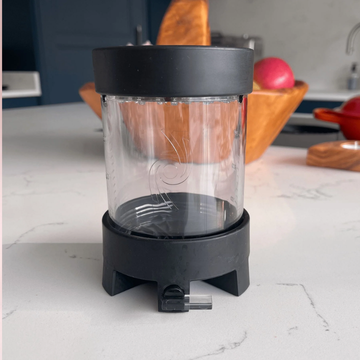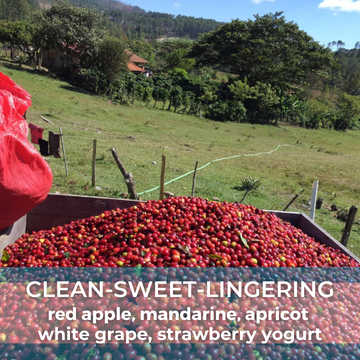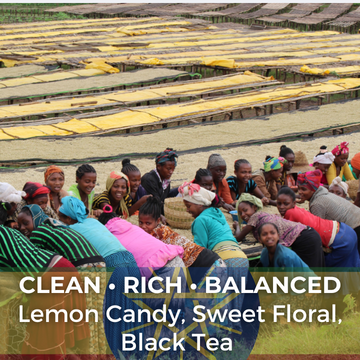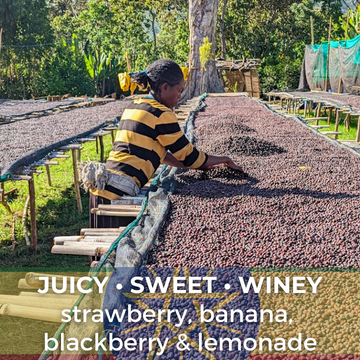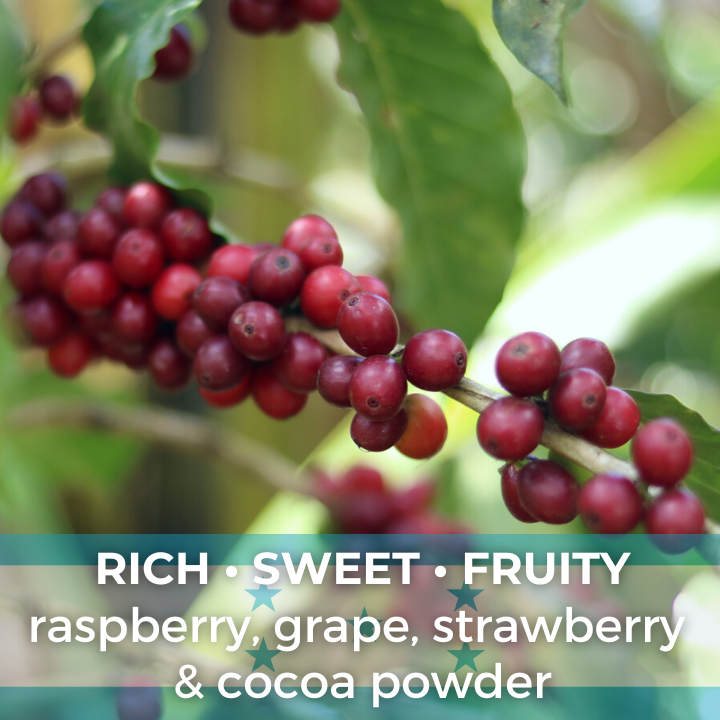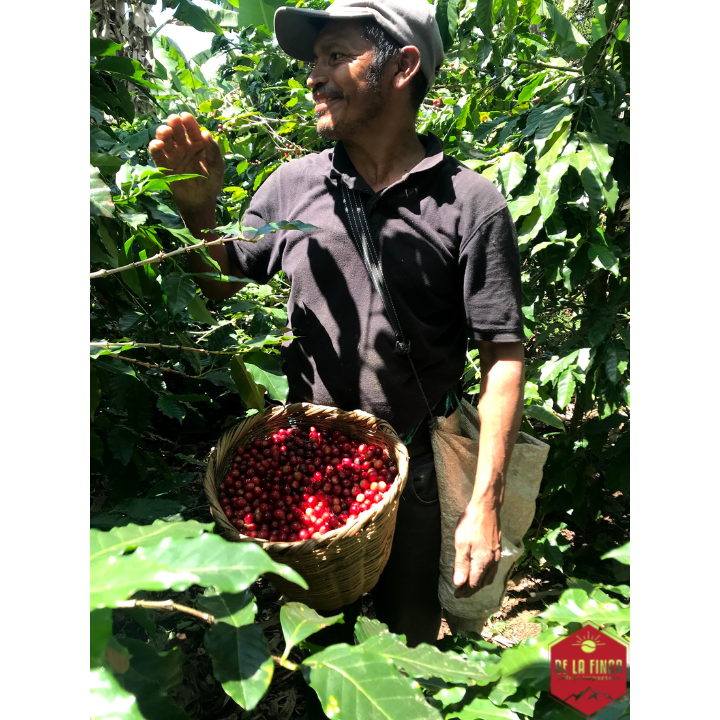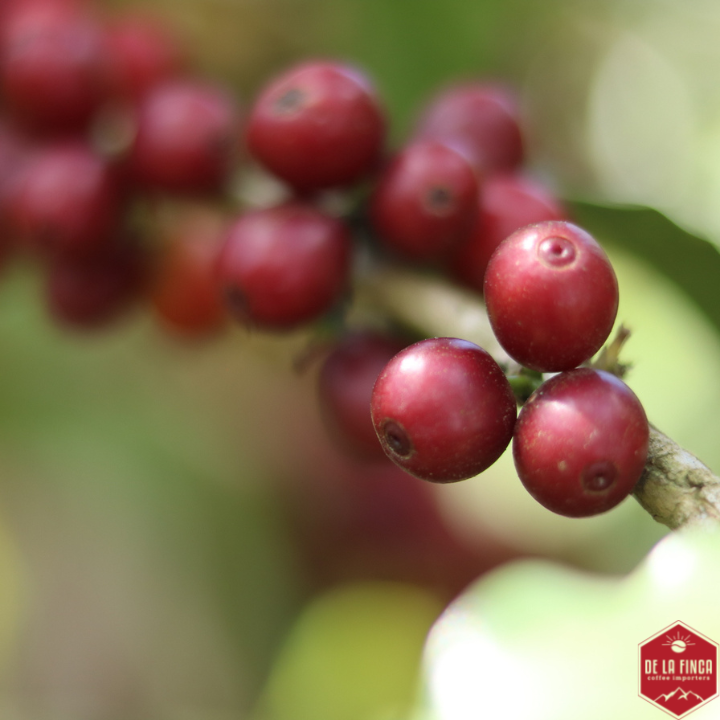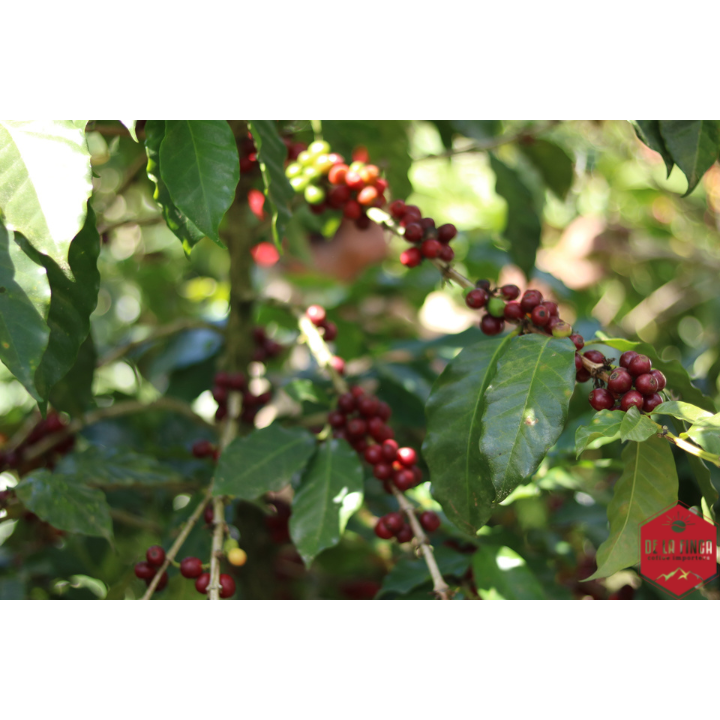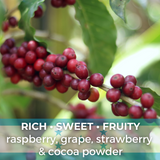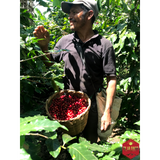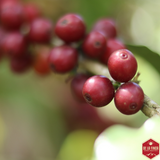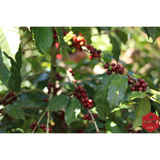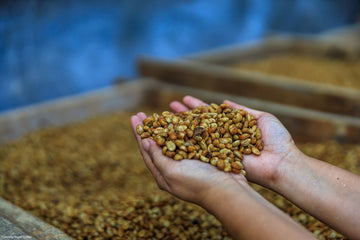Honduras Marcala 72 Hour Double Ferment Anaerobic Natural
De La Finca is an importer as well as a producer and this offering is from one of their own farms in Marcala, La Paz, Honduras. That means it’s direct trade from them to your hands. De la Finca started in 2013 and is family-owned and operated, now with 22 family members who are a part of the farming process. Nelson Amador (co-founder of De la Finca Honduras along with his cousin Joel Banegas Sr.) is a fifth generational coffee farmer and he started De La Finca Importers “with the intention of supporting his family and other small coffee producers from his home country of Honduras while also actively building partnerships with roasters around the USA”. You can read more about their vision for the company in the farm bio. Now, let’s talk more about this coffee!
This coffee has A LOT going for it. It’s single varietal, yellow bourbon, it’s an anaerobic fermented natural and it’s organic and bird friendly to boot! A quick overview on the 72-hour fermentation process – after the cherries are harvested, then they’re put into burlap bags to ferment for 24 hours, then transferred to barrels where they are completely cut off from oxygen for 48 hours. This is the anaerobic portion of the fermentation. Afterwards, they are left to dry on raised African beds. The result is a cup that’s sweet and juicy without any of the harsh, vinegary flavors associated with less thoughtful anaerobic processes. This year’s harvest features big notes of raspberry, white grape, strawberry and cocoa powder. There’s also a fairly bright acidity coming from the fruity flavors as well. As you’d expect from a natural, it’s moderately balanced with huge body, creamy texture, and a fairly clean finish. Compared to last year’s crop, we found this cup less intense and a bit more rounded. It’s less “in-your-face” and more refined. An excellent introduction for folks who want to try an anaerobic natural but don’t want an over the top experience! And for such an intense processing method, this coffee is also surprisingly forgiving in the roaster.Reminder! This coffee is raw, you must roast it before brewing
Arrival Date:Arrival: Summer 2024. Harvest season: 2023-2024, packed in GrainPro
Acidity & Brightness: Fairly bright and sweet
Balance & Finish: Moderately balanced and fairly clean finish
Body & Texture: Very full and rich with a creamy texture
Flavors: Raspberry, white grape, strawberry & cocoa powder
Grade: SHG-EP, grown at 1450 masl
Certifications:Direct trade, Organic & Bird friendly
Processing: Double anaerobic fermentation natural process: Fermented for 24 hours, then transferred to barrels cut off from oxygen for 48 hours. Afterwards, left to dry on raised African beds.
Grower: De La Finca Coffee | DLF Marcala
Region: San Jose, Marcala, Honduras
Varietals: Yellow bourbon
Recommended Roast Range: City to Full City (Light to Medium)
We like this coffee best at City + (light-medium, at the tail end of 1st crack), but it will perform well nearly anywhere in the Light to Medium spectrum. Lighter roasts accent bright acidity, while medium roasts will lose brightness in favor of body as well as bringing out more rounded sweetness. For such an intense processing, this coffee is surprisingly forgiving in the roaster!
De La Finca Coffee - "In the spirit of learning and innovation, we bought a small 9 acre farm in the fall of 2019 on the outskirts of Marcala, La Paz, Honduras.
Our intention behind this expansion is three-fold:
1) To expand our expertise in Honduran coffees. Our family’s coffee farms are primarily located in the Comayagua region (about 3 hours away). With Marcala, La Paz being the hub of specialty coffee in Honduras, a farm in the area opens both our operations and insight in a strategic location in the coffee community of our home country.
2) To experiment with new processes and production methods. The property gives us room for research and experimentation without tampering with our own family’s production. We bought this property as an experimental specialty farm to be separate from our own family farms and experiment with different production and processing methods.
3) To innovate, implement, and teach best practices in the industry. We want to use this farm as both an experimental and an example farm — a place where we can innovate, implement and then train other producers not only in what we’re learning in terms of production but also in terms of operations. For example, many producers pay low wages to pickers and have difficulty finding workers when harvest time comes. By paying higher wages to our pickers and employing workers year round, we can lead by example and hopefully see an impactful and significant shift in our industry.
